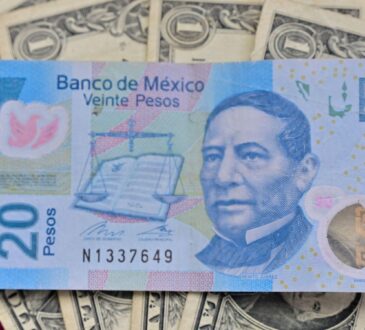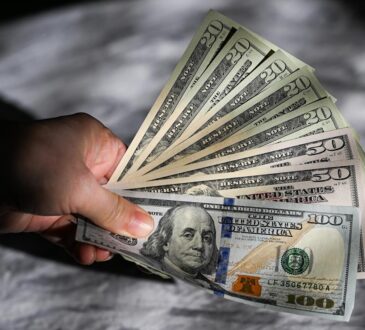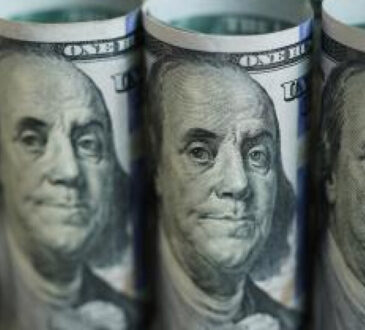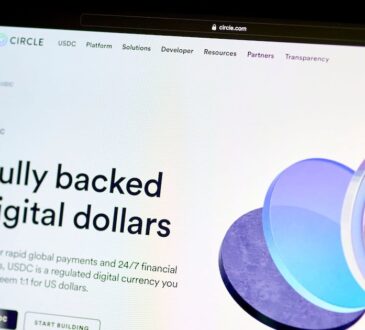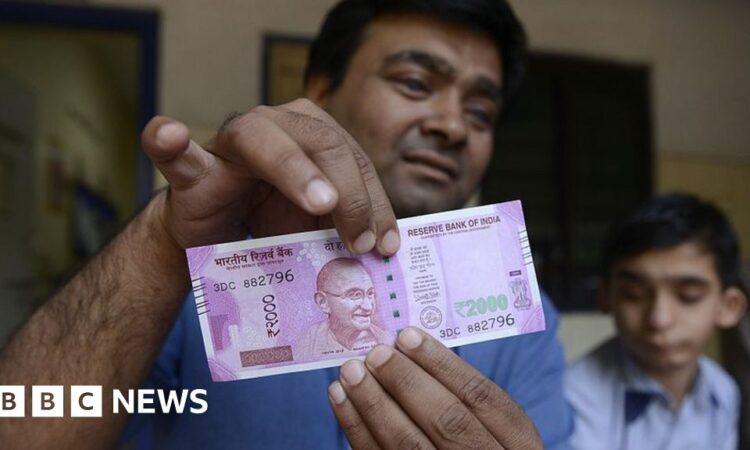
- By Cherylann Mollan
- BBC News, Mumbai
Image source, Getty Images
Indians can exchange 2,000 rupee notes at banks till 30 September
Indians are exchanging 2,000-rupee ($24 ;£19) notes at banks as the country aims to withdraw the currency from circulation.
The note was introduced in 2016 after the Indian government withdrew 500 and 1,000 rupee notes.
PM Narendra Modi’s decision was seen as an attempt to curb black money, but opposition parties say it failed to achieved its goal.
The notes can be exchanged until 30 September.
India’s central bank on Friday said that though 2,000-rupee notes – India’s highest denomination currency note – would be removed from circulation, they would still be legal.
This means that the Reserve Bank of India (RBI) wants most such notes to be exchanged or deposited into banks by 30 September and gradually removed from circulation.
But they don’t lose their legal status, allowing people to use them for transactions even after the deadline.
Banks have also been told to not issue 2,000-rupee notes. They have been asked to add more staff and counters to deal with an anticipated high volume of transactions.
The announcement has sparked some panic among people, who say it is reminiscent of the “demonetisation” move by the government.
On 8 November, Mr Modi gave only four hours’ notice to announce that all 500 and 1,000 rupee notes – effectively 86% of India’s cash – would no longer be valid. The 2,000 rupee notes were introduced to quickly replenish the amount currency in circulation after the move – termed “demonetisation” in the media.
Long queues were seen outside banks as people rushed to exchange 500 and 1,000 rupee notes before the deadline. There were reports of people fainting or dying as they waited in endless ATM queues.
The government has reassured people that the latest move is not “demonetisation”.
But it has received mixed responses.
Some BJP lawmakers have praised it by calling it a “second surgical strike on black money“, while some leaders from opposition parties said that the decision of withdrawing the notes in 2016 was flawed as the economy suffered due to it and the latest move was “an admission of that mistake”.
After the government’s announcement, there were reports of people making payments at petrol stations and shops using 2,000-rupee notes in a bid to get rid of them.
However, on Monday RBI governor Shaktikanta Das appealed to people to not rush to banks as there was “more than the required notes already available, already printed” for exchange.
He also said the withdrawal of the currency notes would have a marginal impact on the economy as they were “hardly used”.
BBC News India is now on YouTube. Click here to subscribe and watch our documentaries, explainers and features.

